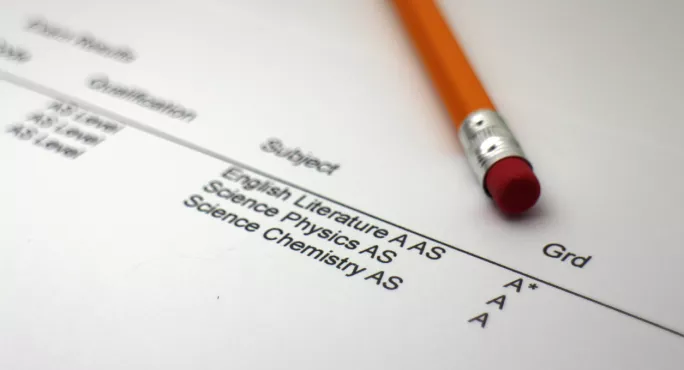This year, students have taken new A levels in 19 subjects, in the third year tranche of reformed versions of the qualifications introduced since 2017. Here, we answer the essential questions and tell you what you need to know about this year’s results.
Related: More top grades predicted in English and maths A levels
News: A-level entries: English down and sciences up
Background: Need to know: The exam reforms
When were reformed A levels introduced?
They have come in gradually over the past three years, as part of a four-year process.
In 2017, the first tranche of the new qualifications - 13 new A levels - were taken in: art and design, biology, business, chemistry, computer science, economics, English language, English language and literature, English literature, history, physics, psychology and sociology.
In 2018, pupils sat revised exams in a further 12 qualifications: classical Greek, dance, drama, French, geography, German, Latin, maths, music, physical education, religious studies and Spanish.
And this year, pupils have taken reformed exams in a further 19 subjects: accounting, ancient history, Chinese, classical civilisation, design and technology, electronics, environmental science, film studies, geology, history of art, Italian, law, further maths, media studies, music technology, philosophy, politics, Russian and statistics.
What is different about the new A levels?
The new qualifications were designed to be better preparation for university study. They were introduced by Michael Gove when he was education secretary and represent one of the biggest upheavals of the exams system in decades.
To prepare students for undergraduate study, the exams are now assessed through linear, “end-of-course” assessments, with the amount of coursework reduced to no more than 20 per cent of the overall qualifications.
And AS levels were also “decoupled” from A-level results, meaning that any results achieved by students at the end of year 12 no longer count towards their final mark at the end of Year 13. This has led to a significant drop in the number of AS entries.
Are they more difficult?
Unlike the new GCSEs, the reformed A levels are not intended to be “tougher” than the legacy qualifications. However, some subjects do include markedly different content. In economics and the sciences, qualifications have been revised to include more mathematical content, to reflect the needs of higher education courses in these subjects.
So there shouldn’t be a drop in grades as a result of their introduction?
No. Even if the qualifications were designed to be harder - and they’re not - the system of “comparable outcomes” used by exams regulator Ofqual ensures that the proportion of grades awarded remains broadly constant from year to year once the cohort’s past GCSE performance is taken into account.
So why have I read about predictions of more top grades in English and maths?
Professor Alan Smithers, director of the Centre for Education and Employment Research at the University of Buckingham, has suggested that the new, tougher qualifications at GCSE will have led to weaker candidates “selecting themselves out” of the A-level qualifications.
There has been a long-term decline in the number of English A-level entries, and a more recent decline in pupils opting to study A-level maths. With smaller, higher-ability cohorts, the proportion of candidates achieving the top grades may be set to rise this year.
How have entry levels changed?
While maths and English A-level entries are down, the uptake of single science qualifications is on the rise. There are more candidates taking biology, chemistry and physics, as well as more students sitting exams in psychology and sociology.
Otherwise, entries in all subjects between 2016 and 2019 have remained relatively stable, but it will be interesting to see whether the decline in English and maths reverses in future years as pupils and teachers become more familiar with the revised GCSE syllabuses.
Who has the edge when it comes to the top grades - boys or girls?
When it comes to achieving the top grades, boys have had the edge since the first reformed exams were introduced in 2017. In that year, 26.6 per cent of boys achieved an A*/A grade in their A levels compared with 25.9 per cent of girls - the first time boys had outperformed girls in over a decade. This trend continued in 2018, with some experts suggesting the switch to linear exams suited boys more than girls.





